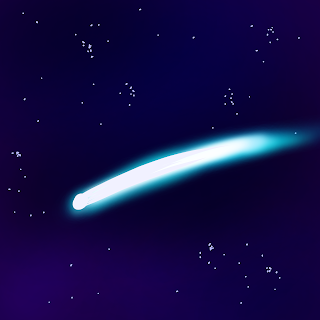Future Tense (2 Points)
The year is 2220.
Humanity has, in essence, created immortality. When the body dies, an AI copy of the consciousness can be created and can live on through virtual reality. Some people use this to continue to interact with dead loved ones, and others meet AI versions of their idols. There has been a lot of debate over how legitimate these AI copies are considering they are created by humans. No matter how hard they try, the people who create these do have biases. This is especially true when the family is involved in crafting the AI version of their dead relative; is this a truly authentic version of the person, or an idealized version? How does this affect their legacy? In the end, does it really matter as long as the family is happy? The morality of turning this into an industry would be questioned, but capitalism was abolished after The Millennium War in 2100, so it’s no issue.
VR has blown up in popularity after scientists figured out how to simulate the sensation of touch back in the mid 2100s. Many people stay in VR because there is no limit to what you can experience. Gender dysphoria is basically a non-issue since the only limit to how you look is the imagination. If you want, you can even experience life in the third person. However, this isn’t recommended, as it can lead to intense dissociation and many an existential crisis. In VR, humanity is a much more fluid concept. Many people display themselves as anthropomorphic animals, robots, cartoon characters, and even abstract shapes. My great-great grandchild Nyx is a triangle with an eyeball and a ring surrounding it, and they’re more human than some people I’ve met. Humanity is all in the mind; it is the ability to be creative and philosophical, to make choices based on the heart and mind, not just based on survival. Bigotry basically doesn’t exist since everyone is unique. That doesn’t mean everyone loves each other, but conflict tends to come more from personality than superficial aspects. Artists are necessary for crafting the assets in VR, and these artists exist both in and outside of VR. There are entirely new art forms and mediums that our feeble 2020 brains cannot comprehend. They come straight from the mind and become physical. Some artists even create whole people for fun and they are fully integrated into the VR world. AI are just another form of human, making up 40% of the VR population. As the rate of childbirth decreases, it’s estimated that the AI population may reach up to 70% by the end of the decade.
While VR is how most people experience life, there are still people who live in the “real” world. Of course, there are those who work on maintaining the VR technology, but there are also those who simply enjoy the natural world. Since VR is so prevalent, cities have become much smaller and are now elevated. So, nature has taken over, and some people have gone back to a more “tribal” mentality. This isn’t to say that they are violent or dumb; as a matter of fact, these people are extremely peaceful, gladly sharing resources and living among each other. These communities are strong and border-less and are glad to work with the Taste Farmers. Taste Farmers are people who have farms to grow the food that is then replicated into VR. Taste Farmers work together with robots and AI to be efficient, although there are some Taste Farmers who don’t use machines just for fun. There’s no anxiety over machines taking jobs since money was abolished alongside capitalism. Then there are roamers, which are people that simply roam the Earth to find inspiration. These tend to be your stereotypical artists and hippies. While some of these people tend to be a bit pretentious since they live in the “real world,” no one really takes them seriously.
Life in 2220 is completely customizable. There is harmony between nature and technology, and humanity finally knows true freedom. The future’s looking bright.


Comments
Post a Comment